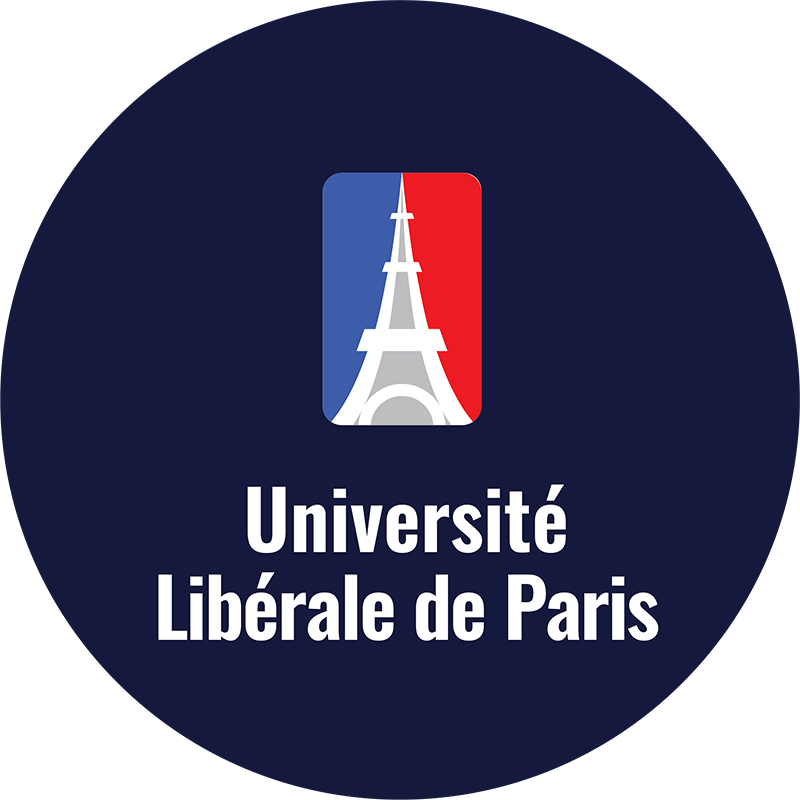
Micro Master Degree in Advanced Business Research Methods
Micro Master Degree in Advanced Business Research Methods
CÔNG NHẬN NĂNG LỰC LEVEL 7 THEO KHUNG NĂNG LỰC CHÂU ÂU EQF
Mục đích của chương trình Micro Master Degree in Advanced Business Research Methods (Level 7 EQF) nhằm trang bị kĩ năng của học viên để thực hiện các loại nghiên cứu quản lý mang tính học thuật thông qua việc phát triển và thiết kế một đề cương nghiên cứu khoa học. Học viên sẽ phát triển nguồn kiến thức quan trọng về các khái niệm khoa học, thực tiễn và đạo đức của nghiên cứu trong bối cảnh môi trường kinh doanh.
Micro Master Degree được công nhận tương đương với Level 7 EQF (Thạc sĩ) theo khung năng lực Châu Âu. Học viên sau khi tốt nghiệp có thể tiếp cận nhanh chóng vào môi trường công việc; và có thể chuyển 20 tín chỉ và toàn bộ học phí sang các chương trình Thạc sĩ của Paris-U.
Programs in details
Learning Outcomes:
1. Be able to develop research approaches in a relevant context.
1.1 Appraise business research problems.
1.2 Develop and justify appropriate research aims and objectives within a defined scope and timeframe.
1.3 Critically explore, select and justify research approaches.
2. Be able to critically review literature on a relevant research topic.
2.1 Critically analyse different theoretical approaches to a research problem.
2.2 Create a structured and thorough critical literature review.
3. Be able to design business research methodologies.
3.1 Critically evaluate relevant research methodologies to reflect the research objectives.
3.2 Design an appropriate methodology in terms of the research objectives for a defined population.
3.3 Justify the methodology selected in terms of the research objectives within agreed ethical guidelines.
4. Be able to develop a research proposal.
4.1 Create a research question, literature review and methodology.
4.2 Propose techniques for use with quantitative and qualitative data collection and analysis.
Topics:
Research problem identification
Course Coverage
- Understanding the research context; research problem identification for investigation; research topic identification; the conceptualisation of a research problem; developing insights; feasibility and possibilities; the search for literatures; setting initial components e.g. working plan, research goals, time table and management, research process, monitoring, evaluation and revision.
Research problem selection and justification: rationale of the proposed research
Course Coverage:
- Appropriateness; reasons for selection of a specific research topic; skills, capacities and knowledge requirement identification; research question and hypothesis formulation; rationale elaboration; essential date setting; review and monitoring process.
Develop appropriate research objectives and justification: background, aims and objectives selection
Course Coverage:
- Reasons for these selections; length of the research; skills, capacities and knowledge enhancement e.g. literature review, methodology, research type selection, data collection and analysis, drawing a successful conclusion; critical knowledge on appropriate research methods e.g. qualitative and quantitative, statistical research tools; research validity, reliability and ethical issues; critical justification of these selections.
Literature review as relevant to the research problem and objectives
Course Coverage:
- Definition, features and ways to do literature review; the generic selection of literature; spotting the sources of literature; justification of an appropriate selection of literature.
To compare different theories and authors
Course Coverage:
- The selection of appropriate theories for the research; conceptualisation of the research phenomenon; including relevant theories and the justification of choices; the strength and credentials of relevant theoretical framework; the understanding and interpretation; developing the theoretical framework.
Critical review of the key literature for inclusion in a research proposal while focusing on concepts and methodologies followed by other
Course Coverage
- Knowledge on acceptability, reliability and validity of literature; the reference style of literature; key literature type selection e.g. journals, books, papers, conference papers; source of literature: library searches, internet, both online and offline publication media.
Research methodologies and relationship with research objectives
Course Coverage:
- Advanced knowledge on research methodologies; action research; intervention research; non intervention research.
Design and choose an appropriate methodology in terms of the research objectives
Course Coverage:
- Designing a research using the most appropriate method; research question or hypothesis test; reliability and validity test; ethical and access issues consideration; quantitative methodology; questionnaire design and distribution; conducting interviews; surveys; qualitative methodology; interviews; observation; case studies.
Justify the methodology selected in terms of the research objectives
Course Coverage:
- Critical knowledge on questions on the questionnaire, interviewee selection, data verification, bias, time and place selection, interview recording; justification of using any selected research tool.
Evaluate and use techniques for use with quantitative and qualitative data
Course Coverage:
- Types of data presentation and analysis; qualitative data analysis e.g. techniques of categorisation and coding; transcripts interpretation, data analysis process, data analysis, data presentation, the use of information technologies, quantitative data analysis e.g. value analysis, coding, data analysis manually and electronically;
Indicative reading list
Core texts:
- Cameron, S. (2005) The MBA Handbook. Harlow: Prentice Hall.
- Saunders, M., Lewis, P. and Thornhill, A. (2010) Research Methods for Business Learners. Harlow: Prentice Hall.
Additional reading:
- Anderson, V . (2009) Research Methods in Human Resource Management. London: Chartered Institute of Personnel and Development.
- Binsardi, A. (2008) Research Methods for Management. Cambridge: International Academic Press.
- Booth, A., Papaioannou, D. and Sutton, A. (2012) Systematic Approaches to a Successful Literature Review. London: Sage Publications. • Bryman, A. and Bell, E. (2011) Business Research Methods. New York: Oxford University Press.
- Burns, R. P. and Burns, R. (2008) Business Research Methods & Statistics Using SPSS. London: Sage Publications.
- Cooper, D. R. and Schindler, P. S. (2006) Business Research Methods. Boston: McGraw Hill.
- Deniels, P . and Becker, L. (2012) Developing Research Proposals. London: Sage Publications.
- Denscombe, M. (2007) The Good Research Guide. Maidenhead: Open University Press.
- Easterby-Smith, M., Thorpe, R. and Jackson, P. (2012) Management Research. London: Sage Publications.
- Fink, A. (2009) Conducting Research Literature Reviews. London: Sage Publications. Flick, U. (2011) Your Research Project. London: Sage Publications.
- Gill, J. and Johnson, P. (2010) Research Methods for Managers. London: Sage Publications. Jankowicz, A. D. (2005). Business Research Projects. London: Thomson Learning.
- Jesson, J. K., Matheson, L. and Lacey, F. M. (2011) Doing Your Literature Review. London: Sage Publications.
- Keleman, M. L. and Rumens, N. (2008). An Introduction to Critical Management Research. London: Sage Publications.
- Malhatra, N. K. (2007) Marketing Research: An Applied Orientation. New Jersey: Pearson.
- McNiff, J. and Whitehead, J. (2009) Doing and Writing Action Research. London: Sage Publications.
- Moutinho, L. and Hutcheson, G. D. (2011) The Sage Dictionary of Quantitative Management Research. London: Sage Publications.
- Robson, C. (2002) Real World Research. Hampshire: John Wiley and Sons.
- Saunders, M., Lewis, P. and Thornhill, A. (2009) Research Methods for Business Learners. Harlow: Financial Times/Prentice Hall.
- Thomas, R. and Lynn, P. (2009) Survey Research in Practice. London: Sage Publications.
Để đăng kí tham gia khóa học, học viên cần đạt 1 trong những điều kiện sau:
- Đã có bằng Cử nhân các chuyên ngành từ các đại học được kiểm định hoặc bằng Level 6 theo hệ EQF hoặc tương đương.
- Với ứng viên có bằng đại học nội địa chưa có kiểm định quốc tế sẽ phải dựa vào chính sách chương trình APEL.Q của Université Libérale de Paris (Paris-U) để tuyển sinh.
- Trên 21 tuổi
Lưu ý: Université Libérale de Paris (Paris-U) bảo lưu quyền quyết định tiếp nhận hay không tiếp nhận sau khi bộ phận tuyển sinh đã xem xét kỹ lưỡng hồ sơ của từng ứng viên để đảm bảo ứng viên có thể đạt được nhiều lợi ích và kiến thức khi tham gia chương trình. Paris-U không chấp nhận bằng cấp đầu vào từ các trường đại học giả mạo và các trường đại học thuộc nhóm Diploma Mills.
Yêu cầu tiếng Anh
Ứng viên không đến từ những quốc gia sử dụng tiếng Anh là ngôn ngữ chính phải cung cấp chứng chỉ về trình độ tiếng Anh.
- Tiếng Anh đạt tối thiểu khung năng lực CEFR (Common European Framework of Reference) ở mức B2 hoặc tương đương.
- TOEFL tối thiểu 101 điểm hoặc IELTS 6.5; Nói và viết phải đạt từ 6.5 hoặc tương đương.
Sau khi tốt nghiệp, học viên nhận được:
- Micro Master Degree in Advanced Business Research Methods từ Université Libérale de Paris bản điện tử.
- Micro Master Degree in Advanced Business Research Methods từ Université Libérale de Paris bản cứng chuyển về nhà.
- Giấy công nhận Accreditation of Prior Experimental Learning for Qualification (APELQ) từ Paris-U với số tín chỉ và học phí có thể tích luỹ.
- Xác nhận chuyên gia Level 7 Certified in Advanced Business Research Methods từ Paris-U
Vì chương trình được kiểm định và công nhận nên học viên có thể dễ dàng sử dụng chứng chỉ trong các môi trường làm việc và có nhiều cơ hội thăng tiến trong sự nghiệp. Trong trường hợp muốn học lấy bằng đại học, học viên có thể chuyển đổi toàn bộ tín chỉ và toàn bộ học phí khi tham gia chương trình tại Paris-U.
Micro Master Degree đạt cấp độ Level 7 theo khung năng lực Châu Âu EQF tương ứng với:
- Level 7 certificate of Regulated Qualification Framework (RQF) of UK
- Level 10 certificate of Scottish Credit and Qualifications Framework (SCQF)
- Level 7 certificate of Credit and Qualifications Framework (CQFW)
- Level 7 certificate of European Qualifications Framework (EQF)
- Level 9 certificates of the Australian Qualifications Framework (AQF)
- Level 7 certificate of ASEAN Qualifications Reference Framework (AQRF)
- Level 9 certificate of the African Continental Qualifications Framework (ACQF)
Học viên có thể chuyển tất cả tín chỉ và toàn bộ học phí đã đóng khi chuyển tiếp sang các chương trình của Paris-U nếu muốn lấy bằng thạc sĩ chính thức.
Số tín chỉ có thể tích luỹ:
Học viên được tích luỹ được 20 credits khi tham gia chương trình Master of Business Administration (MBA). Vui lòng tham khảo thêm về chính sách tích luỹ tín chỉ TẠI ĐÂY.
Chuyển học phí đã đóng:
Khi tham gia chương trình MBA, toàn bộ phí đã đóng cho chương trình Micro Degree sẽ được giảm tương ứng. Thông tin chi tiết vui lòng xem TẠI ĐÂY.
APEL.Q – Accreditation of Prior Experiential Learning for Qualifications là quy trình công nhận năng lực (APEL) để cấp bằng (Q- Qualification) thông qua việc thẩm định và đánh giá quá trình học tập (chính thức, không chính thức, đào tạo tại doanh nghiệp) và từ kinh nghiệm làm việc. APEL.Q được triển khai rộng rãi tại Châu Âu và gần đây, tại Châu Á, một số nước đã công nhận APEL.Q như quy trình chính thức, được công nhận cấp quốc gia và được ưu tiên phát triển như một chính sách hiệu quả phục vụ cho giáo dục khai phóng, dịch chuyển lao động và học tập suốt đời.
APEL.Q cho phép các cá nhân có chuyên môn nghiệp vụ, có kinh nghiệm làm việc nhưng không có bằng cấp (academic degree) có thể chuyển đổi kinh nghiệm để lấy bằng. APEL.Q được đánh giá là quy trình chặt chẽ, minh bạch, công bằng, chính xác và tiết kiệm.
Với các chương trình đào tạo truyền thống, việc cấp bằng sẽ dựa vào năng lực có được từ chương trình đào tạo. APEL.Q áp dụng quy trình ngược so với đào tạo truyền thống, dùng chính năng lực theo từng vị trí (position) và cấp độ (level) do chính phủ công bố để đánh giá, từ đó công nhận và cấp văn bằng. Văn bằng sẽ được cấp từ các tổ chức nghề nghiệp và/hoặc trường đại học nếu tổ chức nghề nghiệp và/hoặc trường đại học đó công nhận quy trình đánh giá.
APEL.Q của Viện hàn lâm khoa học London là chương trình triển khai độc lập đầu tiên trên thế giới với các tiêu chí đánh giá năng lực được công bố và công nhận của chính phủ Anh Quốc và Đại học Khai phóng Paris – Université Libérale de Paris (Paris-U). Xem thêm TẠI ĐÂY
- Chọn chương trình phù hợp theo nhu cầu của bạn. Để đảm bảo lợi ích và thuận lợi tối đa, hãy xem trước chương trình mà sau này có thể chuyển tín chỉ và học phí.
- Email nguyện Vọng học tập về địa chỉ support@paris-u.fr.
- Paris-U sẽ gửi bạn thông tin chi tiết chương trình, bạn tiến hành theo quy trình được hướng dẫn.
- Université Libérale de Paris xuất Letter of Acceptant (LOA). Bạn tiến hành các bước đăng ký theo hướng dẫn và đóng học phí.
- Université Libérale de Paris sẽ gửi đến bạn tài khoản đăng nhập vào hệ thống e-learning và các tài liệu hướng dẫn đi kèm.
- Bạn lúc này là sinh viên chính thức của Paris-U với chương trình Micro Degree.
Micro Degree là chương trình triển khai theo mô hình trực tuyến. Bạn có thể học mọi lúc mọi nơi. Bài kiểm tra cuối khoá được upload lên hệ thống làm căn cứ để quyết định tốt nghiệp. Trong trường hợp học viên không nộp bài đúng hạn sẽ xem như rớt môn và bị huỷ bỏ tư cách sinh viên và các quyền lợi đi kèm. Chương trình Micro-Degree không áp dụng chính sách Resit.
- Chương trình Micro-Degree bên cạnh do Paris-U triển khai trực tiếp, thì những chương trình không phải do Paris-U triển khai chỉ chấp nhận chuyển tín chỉ khi đã được Paris-U công nhận bằng văn bản.
- Để có thể chuyển được tín chỉ và học phí, học viên phải gửi toàn bộ tài liệu nhận được sau khi tốt nghiệp chương trình Micro Degree. Paris-U sẽ không tiếp nhận việc chuyển điểm và học phí nếu ứng viên không cung cấp đầy đủ.
- Học viên chỉ được chuyển đổi tín chỉ và chuyển học phí với chương trình tương ứng, bao gồm tương ứng về cấp độ (Level) và tương ứng về chuyên ngành.
- Chương trình chuyển đổi tín chỉ và học phí chỉ áp dụng trong thời hạn 2 năm kể từ ngày tốt nghiệp Micro-Degree. Sau thời gian này, Micro-Degree đã học sẽ không còn hiệu lực chuyển đổi tín chỉ và học phí.
- Việc chuyển đổi tín chỉ giúp giảm bớt số tín chỉ cần phải hoàn thành không đồng nghĩa với rút ngắn tổng thời gian của chương trình. Học viên tốt nghiệp cùng với những học viên thông thường khác.


Tuition fees
Tuition policies are in keeping with the provisions of the Paris-U policy and subject to change without notice. In some case, Paris-U offer variety of Scholarships for International Students.
Université Libéral de Paris
Université Libéral de Paris (Paris-U) offers higher education programmes in English only and that are different from the French National Curricula and Programmes leading to French Government accredited university qualifications, which falls under the French Public Higher Education sector.
Université Libérale de Paris
1 rue de Stockholm 75008 Paris, France
Phone: +33758491227
Email: support@paris-u.fr
Một Đại học của the European Education Holdings
Wertachstrasse 21 • 86153 Augsburg
Phone: +15908605264 • Email: support@education.holdings
Về Paris-U
Programs
Thành viên Paris-U
Hệ thống Paris-U
Chính sách Paris-U
Chính sách và Điều khoản

